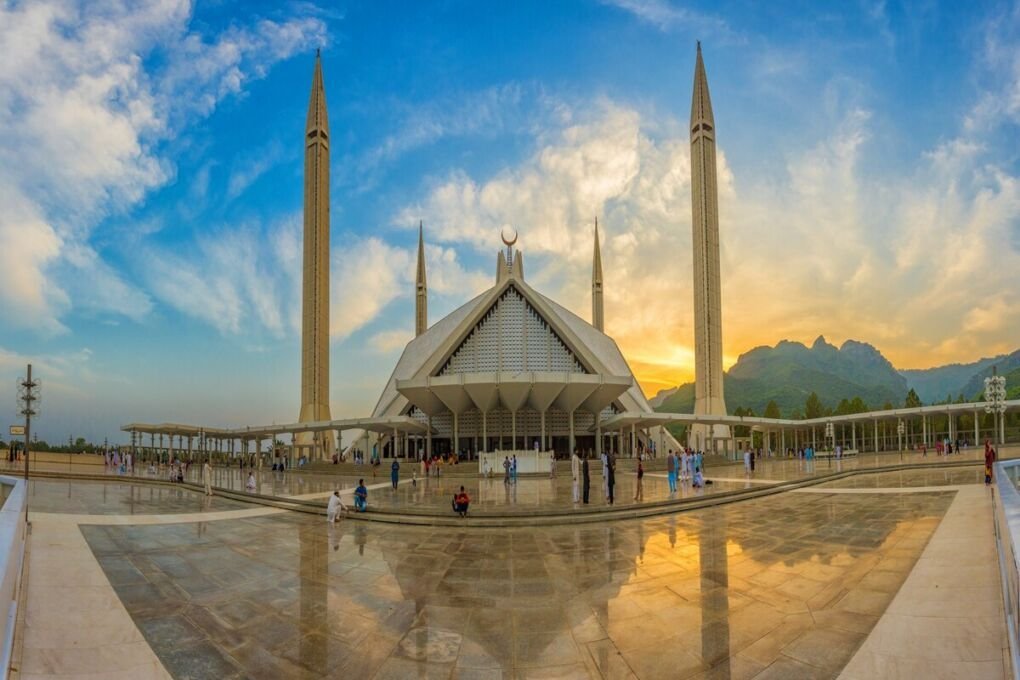From breathtaking mountains to stunning architecture, Pakistan is truly a sight to behold. The South-Asian country is one of the most populous in the world with over 230 million people, who are known for their heartwarming hospitality.
Boasting a coastline along the Arabian Sea, it has a number of beaches for you to enjoy. Surrounded by beautiful, ornate buildings and flavorsome food that you can smell a mile away, Pakistan is sure to put a smile on your face.
Pakistan truly has something for everyone and every climatic situation, with vast deserts, glistening beaches, beautiful bare mountains, snowy mountains, stunning waterfalls and enchanting forests. With all of the stunning landscape that this country offers, let’s see how it does on safety.
Top Tip: To have a fun and care-free trip check out the best bank for digital nomads.
Table of Contents
ToggleWhy Visit Pakistan?
For magical scenery and gorgeous natural settings, hike through Fairy Forest and head to Nanga Parbat. This is the ninth-highest mountain in the world and is part of the Himalayan family.

Pakistan is overflowing with intricately detailed mosques that are sure to stun you. One you should definitely go and see is Badshahi Mosque in Lahore. With its white marble accents and meticulously painted frescoes, you’re in for a treat.
To marvel at greatness head into the desert to the fortress that is Derawar Fort. Built in the ninth century as a tribute, it’s been maintained and guarded ever since. It’s a sacred place and you’ll need permission to enter it, but it will be worth it.
Is Pakistan Dangerous?
Pakistan may prohibit foreigners from entering the country due to rising tension. Your visa will likely be declined if they feel that it’s too dangerous for tourists. The insecurity of the country has led to most countries suggesting that their residents don’t visit it.
The constant terrorist actions and heinous crimes that take place have warranted concern from other nations. The people of Pakistan are also prone to civil unrest due to their poverty stricken conditions.
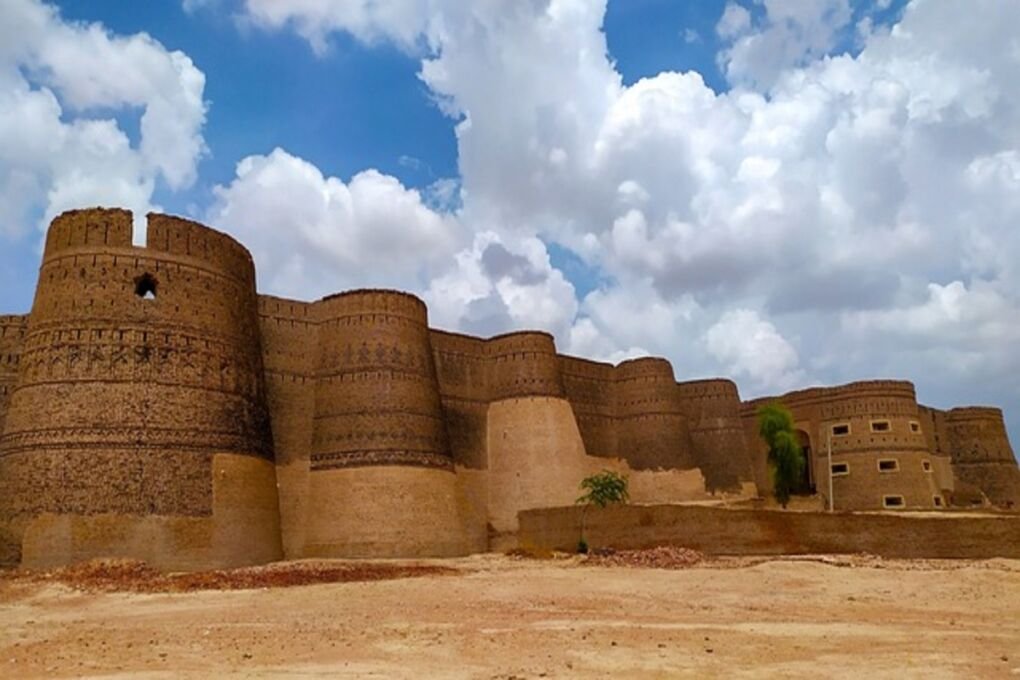

Pakistan also doesn’t have a favorable standing with its neighbors and that has led to serious strain. One of its more famous rivalries is with India, with which it shares a border. They have a daily showdown at the border to display their distaste for one another.
Dangerous Areas in Pakistan
Balochistan
Balochistan is the country’s largest province, bordering both Afghanistan and Iran. It’s essentially off-limits to foreigners so there should be no reason to find yourself here.
It’s seen as the most unstable area in the country due to the constant terrorism attacks. The Afghani border isn’t under control, allowing the Taliban to cross over as they see fit and causing major security issues.
The capital of the region, Quetta, is known for targeted attacks and kidnappings. Luckily it’s very hard to even enter this region. You would need a permit to enter and you’ll be escorted by armed guards when you do.
Karachi
Karachi is the largest city in Pakistan and one of the most dangerous. The declining state of living in this city has led to it being a center for crime.
The cost of living crisis has thrown numerous people into poverty, leading to staggering starvation and a rise in social unrest. Due to economic instability, crimes such as smuggling and theft have also marred this city.
On a lighter note, due to its size, there’s a whole side to Karachi that is suitable for tourists and offers sites such as the National Academy of Performing Arts.


Is It Safe to Live in Pakistan?
Luckily for you, the danger of Pakistan lies in regions that you won’t be able to access anyway. For the most part it’s nothing like what has been portrayed in the media. Don’t expect to be met with violence or unrest, especially if you stay in safe areas.
If you do want to have to pass through or visit an unstable area, the police will escort you. Most attacks take place in areas where terrorists aren’t likely to be. There are a lot fewer attacks from the Taliban, and Pakistan’s military and intelligence agencies have really taken the steps to maximize security.
Safe Areas in Pakistan
Islamabad
The capital city of Pakistan is revered as the safest. This would be a good place to start out your trip because of its cleanliness and its mix of cultures.
For a lovely day activity, head to the Margalla Hills National Park for a hike. It’s a very vegetative setting with multiple trees, valleys, and trails. The park was put in place to protect Pakistan’s exotic wildlife and preserve its rich fauna.
One of Islamabad’s must-see is the Pakistan Monument. The lotus-shaped monument was erected to honor the country’s unity and those who died for their country.
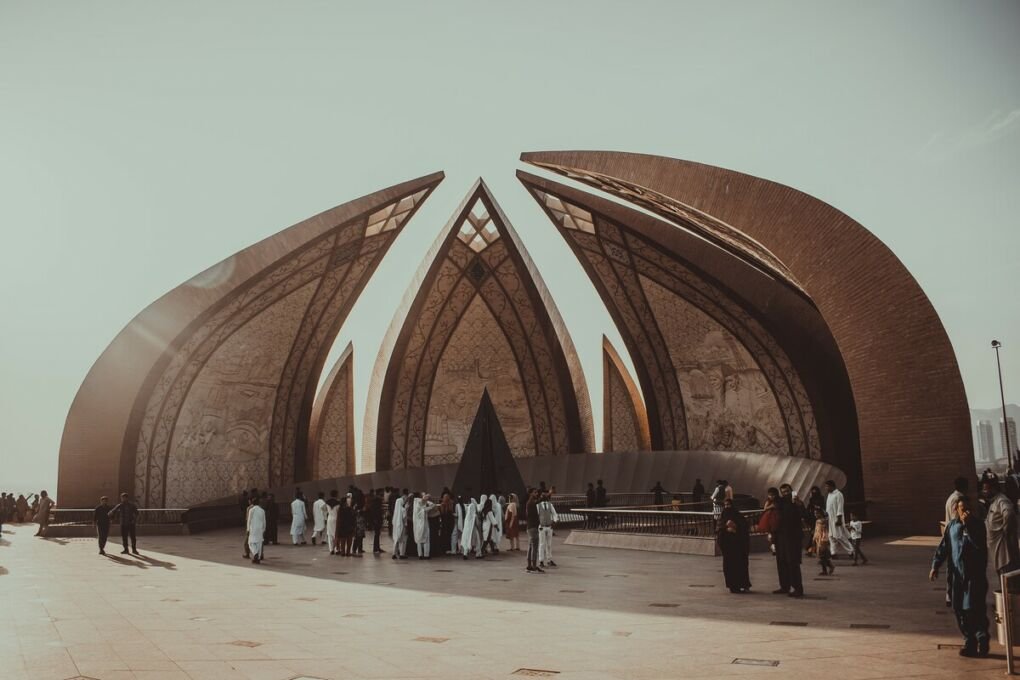

Lahore
Lahore is Pakistan’s second-largest city, bursting with history and culture at every turn. Be sure that your accommodations accept foreigners, not all of them are registered to do so.
One of the main attractions of the city is Lahore Fort. It will blow you away with its size and glazed tiles. Comprised of more than 15 buildings, it is the only monument in Pakistan that represents the history of Mughal architecture and the eras that followed it.
Make sure you go to Lahore Museum and take in its wondrous exhibits, covering most of South Asian history.


Hunza Valley
Hunza Valley, which can be found in the region of Gilgit-Baltistan, is a picturesque mountainous valley perfect for hiking.
Known by the Pakistanis as “Heaven on Earth’, for its jaw-dropping landscape and friendly locals, this is a must on your trip. To take in the beauty, go on a boat ride on Attabad Lake. The lake is surrounded by gray rocks, so you’ll be right in between the mountains.
For an unforgettable and Instagramable moment, make the strenuous climb to Eagle’s Nest for sunset. Be it in winter or summer, the climb is sure to be worth it for a view like no other.
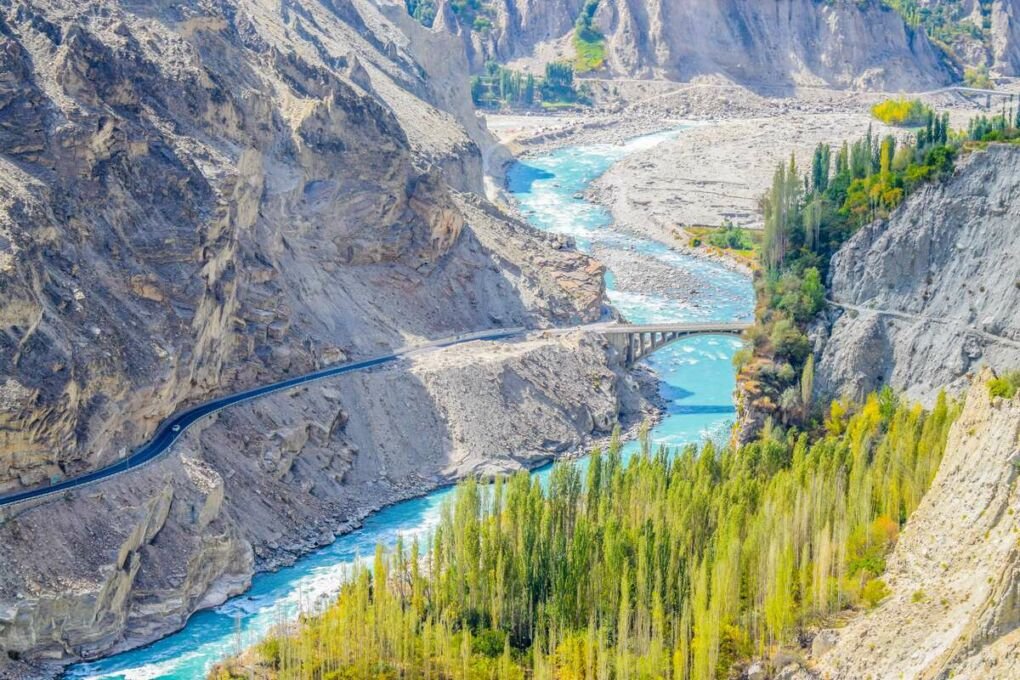

Warnings and Dangers in Pakistan
Pakistan is relatively safe in the designated areas, although petty crimes are still a likely occurrence. In more crowded areas, criminals tend to snatch bags and phones and disappear. Keep your belongings close to you.
Pakistan has a plethora of wildlife, a lot of which are dangerous. You’re most likely to encounter these animals when hiking. The northern province is known for having deadly snakes and Asian Black Bears. Ask the locals to be sure before heading out on a hike.
Groping is common in heavily crowded areas, some may be more forceful, and others may be a slight touch of the hand.
Overall Travel Risk (6/10)
Though there are many safe areas in Pakistan, overall, it isn’t that safe. If you stick to the safe areas and adhere to their laws, you shouldn’t be met with any danger. Don’t try to enter restricted places, if you must enter, then do it the right way.
On the bright side, Pakistan is a big country, so there’s plenty for you to see and enjoy without the threat of danger. When hiking and trekking, be aware of the altitude, you don’t want to get altitude sickness. It’s highly likely for tourists who aren’t aware of how high they are to contract it.
You may have been planning to attend a religious event on your trip, we wouldn’t recommend it. Minority religious gatherings have been the target of terrorist attacks in the past.
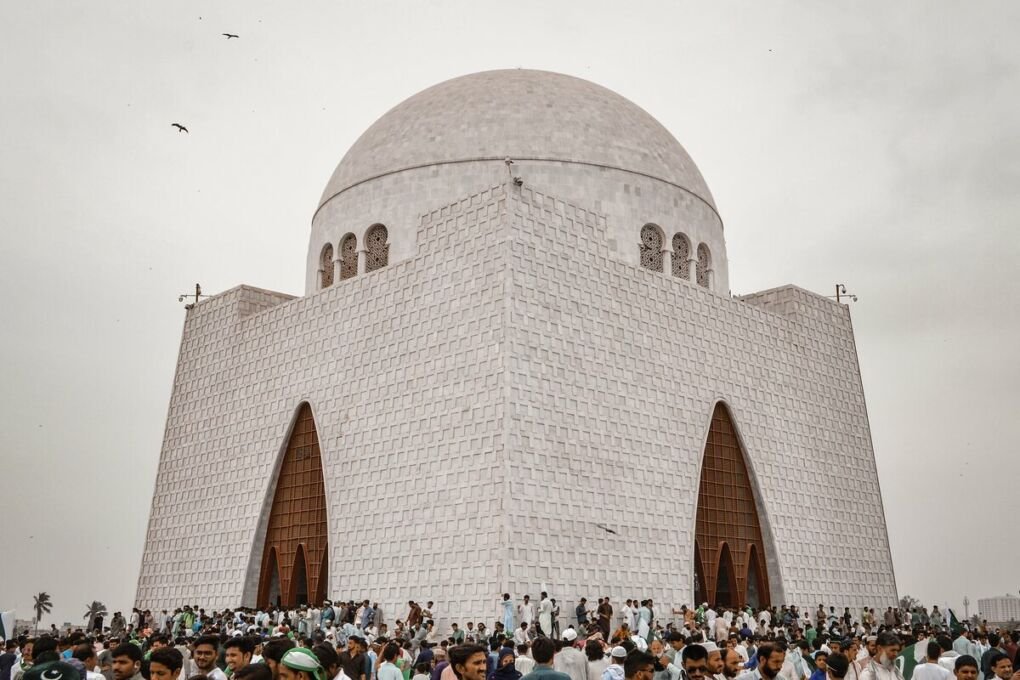

Risk for Transport
The risk of transport in Pakistan is high. It’s very hard to get reliable transport in the country and it would be impossible for you to drive yourself. The roads are badly kept, and the style of driving isn’t easy to adapt to. Unless driving in the major cities, we don’t recommend it.
Trains and buses aren’t known for their safety so beware. Get transport assistance from your hotel. More often than not, you’ll find yourself walking, although you can’t walk everywhere.
Risk of Terrorism
The risk of terrorism is very high. Pakistan is surrounded by gunfire and wartorn countries making it susceptible to terrorism.
There are also mounting tensions within Pakistan and there are several terrorist groups operating within the country. The attacks are usually linked to ethnic disputes, extremism, and political disputes.
National and religious holidays increase the risk of attacks due to the high volume of people that would be out on those days.
Risk of Scams
The risk of scams is high. Scams are very common in Pakistan and are targeted towards tourists. Like in any country, be vigilant and don’t allow yourself to be distracted.
You may encounter fake healers who claim that they can heal you or your soul because of their devout faith. These healing sessions can lead to you being drugged or kidnapped.
Taxi drivers may take longer routes or claim that their meter is broken in order to charge you more. Currency exchangers on the street are not to be trusted either, you’ll leave with fake money.
Risk of Natural Disasters
The risk of natural disasters is quite moderate. Monsoon season is from July to September, it’s been known to cause floods and mudslides. Should any of these occur, water may be in short supply, so make sure you stock up.
Pakistan also experiences earthquakes often because it’s an active seismic zone. Avalanches may occur when the snow melts, so be aware if you’re traveling when seasons change over.


Tips for Staying Safe in Pakistan
Pakistan is very cash-based so you’ll need to have money on hand. The basic rule of thumb applies here. Don’t flash your money around or carry too much. We know that carrying foreign currency can be confusing, but we’ve got you covered. Also keep your valuables and luggage out of sight at your hotel. You don’t want to suddenly “lose” something.
Avoid bringing too much attention to yourself. Pakistani people are very modest and frown upon obnoxious people. So, don’t make yourself stand out even more. To ensure that you have an amazing trip, here are five safety tips for Pakistan:
- Don’t get involved. If there’s a protest happening, don’t get involved. No matter how peaceful it may seem, they’ve been known to get rowdy and stampedes have happened in the past.
- Monitor the media. Keep up to date with any news on the country and the region that you’re in. Pay attention to weather and news reports before and during your trip.
- Cover up. Dress modestly. Pakistan is an Islamic country and you will get stared at for being too overly exposed. Shorts are a definite no. You won’t have to cover your head, except for certain areas and mosques.
- Be careful of what you photograph. It’s illegal to take pictures of any military or government structures. Rather ask a local if you aren’t sure, they’ll be more than happy to help.
- Don’t accept drugs. Drug charges are very serious and can be punishable by death. Don’t accept things from strangers either, as they may be handing you drugs.


Is Pakistan Safe? │Frequently Asked Questions
Is It Safe For Female Travelers?
Yes, however, Pakistan is a male dominated country and you’ll find less women the more out of the cities you go. Generally speaking women won’t feel unsafe in the country as most men are warm and welcoming. It’s also safe to wander the streets at night.
Is It Safe For Solo Travel?
Yes it is. You will feel safe and welcome in Pakistan. There’s a host of things to do alone and due to the family-orientated nature of the Pakistanis, you won’t really feel alone. They will engage with you and help you where necessary.
Is It Safe to Visit Peshawar?
Yes and no. Peshawar is known to fall victim to terrorist attacks, and it’s the most conservative region in Pakistan. You may get stared at for not dressing “appropriately”. Though it’s close to the Afghani border, it’s rebuilding its reputation for safety.
Is Water Safe to Drink?
Only bottled water is safe. The water in Pakistan is not safe for consumption, so don’t accept any. Be sure to carry water with you, especially when hiking or trekking. Don’t drink water from the glaciers either. Locals will try to convince you that it’s got healing or anti-ageing properties but steer clear.
